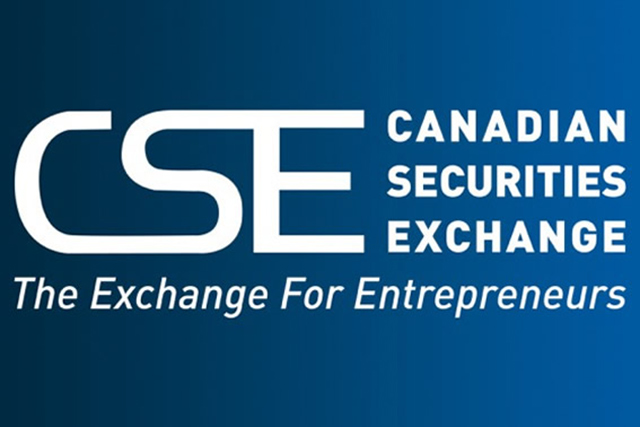A recent report out by Bank of America Merrill Lynch has cannabis investors buzzing, but the real buzz may have more to do with the influence of the venerable name than the results. Does the report go beyond the surface to mine investment information that truly applies to the medical cannabis market? Having a reputable name associated with the sector certainly creates attention and eases the transition to legality, but is BofAML playing it too safe?
At First Look
The report raises a few questions and leaves some uncovered territory. “We think the significance of the report lies more in the fact that it is the first from a major investment firm, than in the specifics of the report which, while well researched, reflects a narrow segment of the overall medical market,” said John Kagia, Director of Industry Analytics at New Frontier Financials.
BofAML may be exploring a narrow segment, but its implications could be much larger. The data is skewed toward the pharmaceutical industries as the best bet for investment. The report seems more like an attempt to associate cannabis with the pharmaceutical industry in a sort of cultural reverse merger, a term familiar to many invested in the cannabis market. Does that limit the true potential for cannabis research? It also begs a bigger question: are bio pharmaceuticals true cannabis products?
“[The report] did not really address the potential implications of the large nutraceutical/whole-plant extract market, which will continue to a far larger proportion of the overall medical marijuana sector than just the pharmaceutical market,” Kagia said.
The stigma of illegality may have influenced BofAML’s choices for research and exploration, but a drug’s scheduling should not be a validation of its efficacy. Nor should such drugs be preferable for testing for the same reason. Creating synthetics as a way of getting around a classification may not promise the same results as authentic derivatives of cannabis.
It is unclear if BofAML is willfully ignoring the inherent conflict of interest its report poses for Bank of America Corporation and its subsidiaries. As reported by Jequetta Byrd and Laura Lieberman on Nov. 13, “When contacted by Bloomberg BNA regarding their policy on providing services to marijuana businesses, Bank of America said simply, ‘As a federally regulated financial institution, we abide by federal law and do not bank marijuana-related businesses.’”
Testing the Labs
There is no dispute about the need for testing standards as illustrated by ongoing problems, such as the recall by Advanced Medicine Alternatives, Denver’s 13th marijuana recall in 13 weeks.
The BofAML report names some cannabis testing labs without going into much detail; otherwise, it focuses on well-established labs, ignoring a burgeoning and important lab testing sub-sector; not only that, these labs have first hand knowledge of the plant, knowledge that can’t be trumped by chemically produced cannabinoids.
Signal Bay (OTC Pink: SGBY) and Digipath (OTCQB: DIGP) are two of the three publicly traded cannabis testing labs mentioned in BofAML’s report. CannLabs (OTCQB: CANL) gets the most attention of the three, but the company has imploded, and the founder dismissed. The economic reality of entrepreneurial investors backing the testing labs to create income can clash with the reality of trial-and error-research.
But the mainstream labs have their own issues. There is some concern about the increase in industry-funded testing. In the larger pharmaceutical sector there was a 43% increase in industry-funded clinical trials since 2006. In that same period trials funded by the National Institutes of Health have declined 24%. Pharmaceuticals, and cannabis, need consistent standards and regulation across the board, whereas individual companies usually only test their own products.
Synthetic Fixation
BofAML’s category of Life Science Tools, which includes consumables, is played down in contrast, but too much perhaps. Pharmaceutical testing is important but that same testing will be needed for recreational products to ensure purity and standards. The report estimates the testing market to be $800-900M and the LST sector $50M by 2020, maybe $150M at the high end.
In Colorado, medical and recreational sales were down in October due to harvest but overall consumption is up for the year. How much of that is extraction business? Nearly $700 million of medical and recreational marijuana was sold in Colorado in 2014. In only 10 months of recorded data, the 2015 numbers have already passed last year’s mark, with more than $814 million in sales. That is only one state!
Are synthetic cannabinoids the same? Is BofAML playing it too safe by only researching the data on these artificial cannabis potions? After all, synthetic cannabinoids are also sold on the street, cheaply produced with unpredictable side effects. Are synthetic cannabinoids trading off the myriad benefits of cannabis only to create adverse side effects?
The scene has changed fast since the analysts compiled their data and BofAML held its 2015 Healthcare Conference last spring. Several of the companies named have had more serious issues. This illustrates the need for accurate data about a company’s fundamentals and management and not just its progress in the labs.
GW Pharma’s (NASDAQ: GWPH) test results for Sativex were not as promising as expected. Epidiolex is still going through testing stages. The report compares it with synthetic cannabis like Marinol, also known as dronabinol, but its side effects may be byproducts of the refined synthetic material and not indicative of pure cannabis-derived medications. It also creates the misperception that natural cannabis may have those same adverse side effects. Although GW Pharma’s products may be true derivatives of cannabis, its share price has dropped from a high of $134 to $64.36, as of Dec. 22, 2015.
Perhaps synthetics were developed as a way around legalization, but do we know that they really are that effective? Judged by the current problems with Insys Therapeutics (NASDAQ: INSY), they were not efficacious, and the company has to deal with serious allegations of fraud.
Zynerba (NASDAQ: ZYNE), a company that produces patent-protected synthetic cannabinoid therapeutics for trans-dermal delivery, will not have any more study results until mid-2016, or early 2017. In the meantime, ZYNE’s share price has dropped from $43 to $11.46, as of Dec. 22, 2015.
Reading Tea Leaves
Although well researched, analysts may also want to spend some more time searching the fundamentals of these new and truly innovative companies and learn the tricky waters they navigate, instead of just banking on the safe ones. Big Pharma getting into the legal cannabis industry may be inevitable, but jumping the gun to create copycat synthetics and subsidizing labs to test them could create misleading and questionable data. For instance, BofAML’s report states that somnolence is a common side effect of cannabis, which is not true of cannabis in general. It depends on the strain. It is a side effect of Indica strains of cannabis, or hybrids containing it, but it is not characteristic of sativa strains. The report also seems to imply that only leaves are sold for smoking, but buds and flower are actually used from the richest part of the plant, the same as in medical use.
There is no doubt the cannabis sector is something of a minefield but maybe the real answer does lie in the actual plant, even from an investment standpoint. Are cannabis companies heading down the same road as typical drug manufacturers or are they really exploring the plant? Like many other aspects of this nascent sector, creative thinking is necessary; we can’t rely on old practices. Credible research on natural plant-derived extracts and cannabinoids should be the real foundation of this industry.









